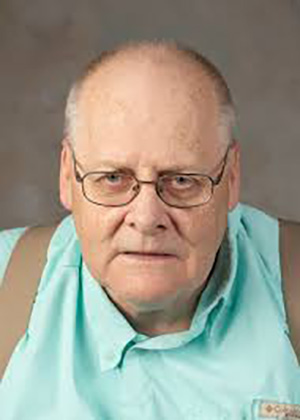By GREG MARKLEY
It was the first day of class at a public university, and the professor duly handed out copies of the syllabus, informally called the “roadmap” for the course. We were told to glance over it. This was to see how we felt about the course: Would it be hard work or easy pickings?
I saw something quite interesting, and told my friend sitting next to me. He laughed and said, “Well, at universities you see this happen once and while. Professors are so busy with research and outreach that they accidentally do this.” What happened? The professor used last winter’s syllabus, for a spring class. She simply forgot to update it. I said, snarky: “Talk about Christmas in April! This may be part of that ugly War on Christmas that TV promotes.”
“Teaching in a pandemic, I’m trying to do creative things and, you know, make it interesting,” said Kenyon Wilson of the University of Tennessee-Chattanooga in December. “The syllabus is really a dry document. I mean, it’s not supposed to be exciting to read, but I thought if my students are going through and reading, I might as well reward them.”
The music professor told the NYT that he put directions to a locker and its combination where a $50 cash prize was free to take. None of the 70+ students saw the note, because they did not carefully read the three-page syllabus. More stunning was that the note was in the syllabus for an entire semester, and yet no one saw the note. On Facebook, Wilson said: “Today I retrieved the unclaimed treasure.” (I wonder — did the upset students “unfriend” him?)
Just as professors sometimes accidentally hand out old syllabi, students take it for granted that the teacher will brief them on upcoming events. But there is more in a syllabus than most students recognize. That includes guidance for disabled students, how you can makeup an exam, how to exit the classroom during a fire, how to be civil to everyone, and more.
Students can easily determine a professor’s political leanings by the books and especially the journal articles or magazine essays he has in a syllabus. If he has two or three articles by public intellectual Noah Chomsky, on politics or criminal justice, that course isn’t the type to be taught at conservative Hillsdale College.
As an undergrad in the late 1970s, one of my minors was English linguistics. Back then, Chomsky was known primarily as a linguist, not an agitator. Today, even at age 93, he sounds like the radical he is when speaking outside his specialty. For a different view, students should read some of Chomsky’s political work; but to have his non-linguistic screeds dominate your classes without an ideological balance is inappropriate.
So it is good to get a short biography of the writers listed in the syllabus to understand where their sentiments lie. For example, a leading conservative intellectual is economist Thomas Sowell. He began as a Marxist working for the federal government. The story of his growth into a capitalist is fascinating. Sowell is age 91. He and Chomsky are still working, in their 90s.
“At the very least, the syllabus sends a symbolic message to the students regarding your personality as a teacher and the amount of investment you have made in the course,” according to Ken Matejka and Lance B. Kurke in College Teaching (“Designing a Great Syllabus”).
Allison Boye, in “How Do I Create an Effective Syllabus,” notes that a statement on incivility should be standard in syllabi. This details the kind of behavior you expect, what you consider disruptive and the consequences for disruptive behavior. Will you tolerate texting or cell phones in your classroom? What about sleeping, talking out of turn and so forth?
Most syllabi now have a diversity, equity and inclusion paragraph. Many universities and colleges have it clearly stated that diversity in outlook and political philosophy is prized. Look in your syllabi for indications of tolerance for divergent views. That is a good sign: it’s thus likely that you and your classmates can get a fair hearing.
Teaching requires much work by a professor or instructor. They can make errors with their syllabi. But students themselves make mistakes. And they often find out too late. At UT-Chattanooga, 70+ students for months had a chance to get a crisp $50 bill just for peeking at their syllabus. Maybe they learned their lesson, maybe not.
(Later this month, U.S. Senate candidates Katie Britt and Mike Durant will be profiled.)
Greg Markley first moved to Lee County in 1996. He has Masters’ in education and history. He taught politics as an adjunct in Georgia and Alabama. An award-winning writer in the Army and civilian life, he has contributed to the Observer for 12 years. gm.markley@charter.net

